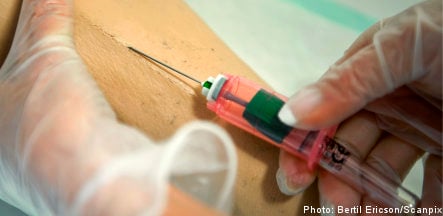While drug tests are not unusual at private companies in Sweden, blood and liver tests on new council employees are considered by union groups to be a step too far, local newspaper Dagbladet reports.
“It is not the business of employers to know what people do in their free time, as long as one manages the job,” Ann-Sofie Berglund at public sector employee union Kommunal said to Dagbladet.
But a Sundsvall council spokesperson defended the policy, claiming that the intention is not to encroach on personal integrity.
“We want to avoid employing active substance abusers,” Rolf Bergbom at Sundsvall council said.
Sundsvall council’s policy, formulated a year ago but recently applied, demands that all those applying for vacancies submit to taking a blood test which is used to detect traces of drugs and/or high alcohol content.
Several other municipalities in Sweden have begun imposing similar policies, Dagbladet writes.



 Please whitelist us to continue reading.
Please whitelist us to continue reading.
Member comments